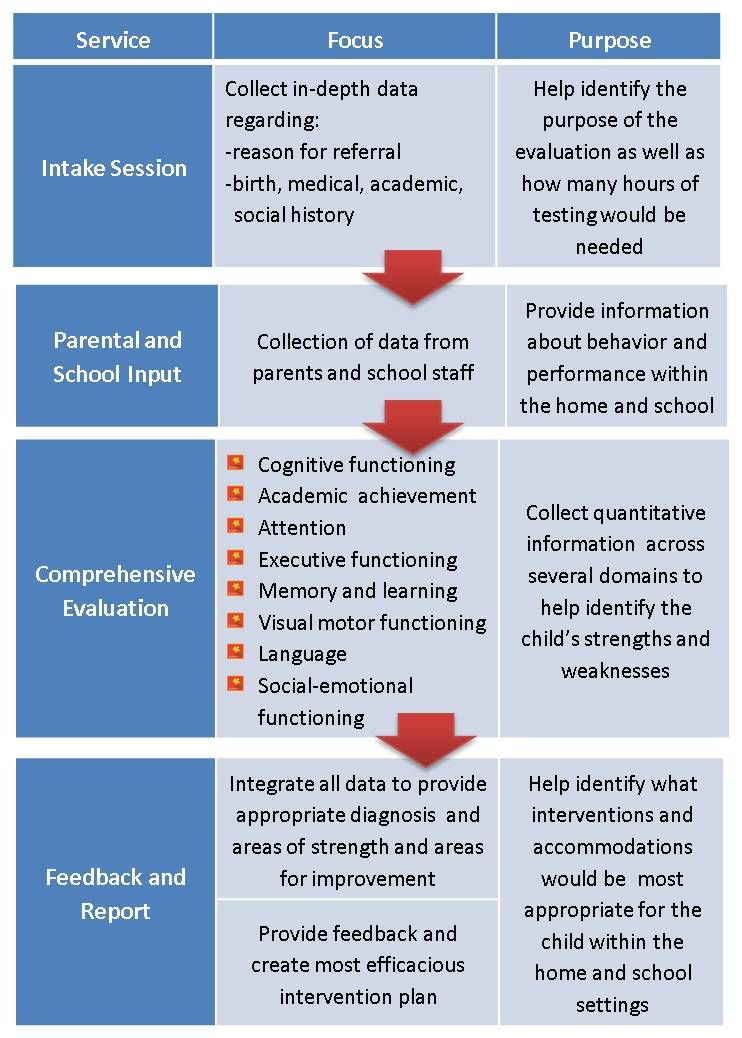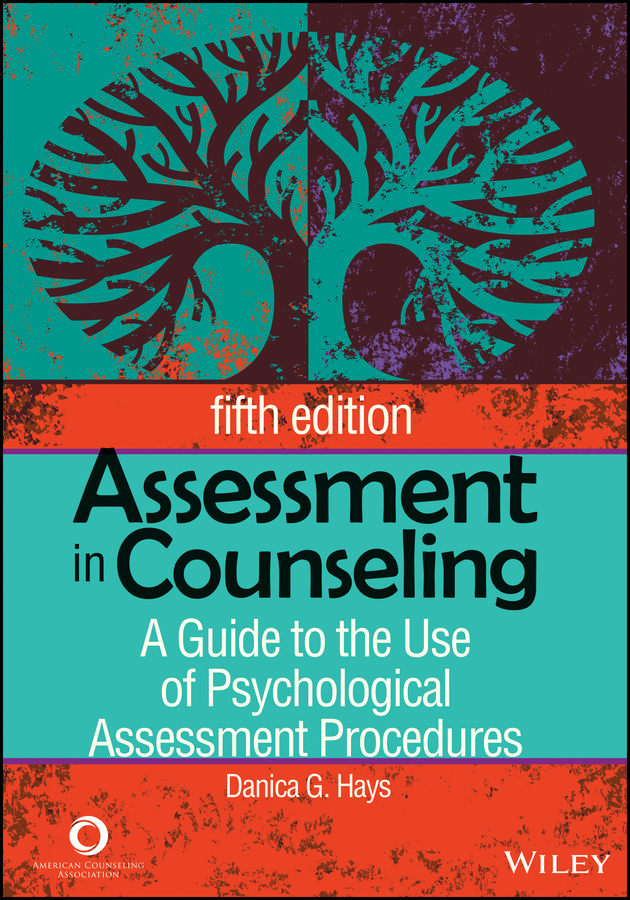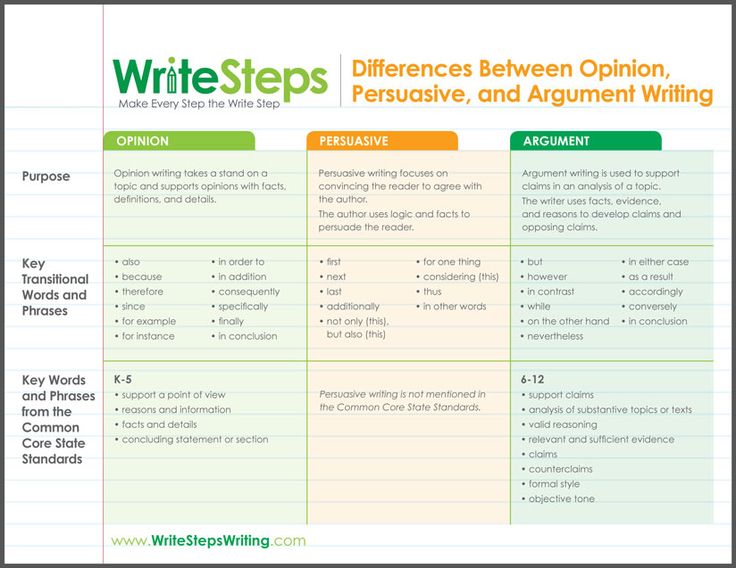Introvert vs extrovert personality test
This Simple Quiz Reveals Which One You Are
Have you ever taken an introvert quiz and been left wondering? Ever heard the way people describe introverts and extroverts and wonder which way you would test? This easy, in-depth introvert/extrovert test can give you a clear answer and help you understand your personality.
Take the “Introvert or Extrovert” Test
For the best results, don’t answer how you think you’re supposed to. Choose the answer that is most true for you, most of the time. For some questions, you may have a hard time choosing (and that’s okay!). When there is no perfect answer, pick the option you are most drawn to. If you’re really stumped, you may want to ask someone close to you to weigh in.
To learn more about introversion and extroversion, see the resources below.
If You’re More of an Introvert…
If your quiz result shows that you’re more of an introvert, you tend to…
- Look at life from the inside out.
- Gain energy through inner reflection and solitude.
- Get more excited by ideas than by external activities.
- Prefer a few deep, close relationships to many casual ones.
- Feel tired and drained after socializing, even if you enjoyed it.
- Listen well and expect others to do the same.
- Think first and talk later.
- Express yourself well in writing.
Read more about what it means to be an introvert.
If You’re More of an Extrovert…
If your quiz result shows that you’re more of an extrovert, you tend to…
- Be primarily interested in and concerned with the external world.
- Gain energy from socializing and being “out and about.”
- Find your energy is depleted when you spend too much time alone.
- Prefer talking with someone rather than sitting alone and thinking.
- Think as you speak.
- Express yourself well verbally.
- May seem “always on the go.”
- May come across as confident, friendly, and assertive.

Introverts and Extroverts Are Born, Not Made
No matter which way the introvert quiz says you lean, it’s likely that you were born that way (at least in part). Being an introvert or an extrovert is part of your innate temperament — the way that you gain energy and prefer to interact with the world. Introversion and extroversion are both temperaments, and both are normal and healthy. About 30-50 percent of the population are thought to be introverts.
You are shaped by both your genes and experiences. Research shows that you were likely born an introvert or extrovert, and that preference will stick with you for life. Introverts will probably always have a preference for calm and solitude, while extroverts will thrive in more stimulating environments.
However, people change. You have new experiences and learn new things. You grow and stretch as a person. In fact, research shows that people tend to change over their lifetime — and usually for the better.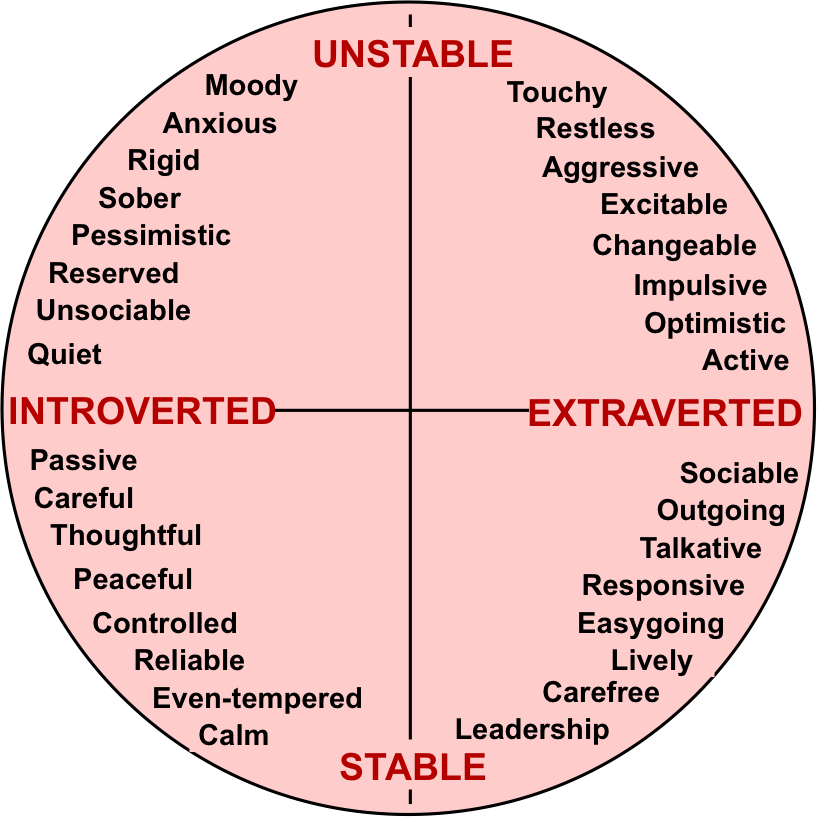 That’s because our personalities, not temperaments, grow and develop.
That’s because our personalities, not temperaments, grow and develop.
That means your temperament doesn’t have to “doom” you. If you’re an introvert who wants to, say, become a better conversationalist, you can learn and practice those skills. Likewise, extroverts can learn to slow down, listen more, and enjoy solitude.
Above all, honor your temperament — and also know that you can work on anything that holds you back.
No Pure Introverts or Extroverts
No two introverts (or extroverts) are exactly alike. What’s true for one introvert may be be quite different for another. Each introvert has a different level of tolerance for stimulation. Each extrovert will vary in their need for “people” contact, among other things.
Also, there is no such thing as a pure introvert or extrovert — no matter what the introvert/extrovert quiz says. “Such a man would be in the lunatic asylum,” the famous psychotherapist Carl Jung once noted. Introversion and extroversion are on a spectrum, meaning, they are not all-or-nothing traits.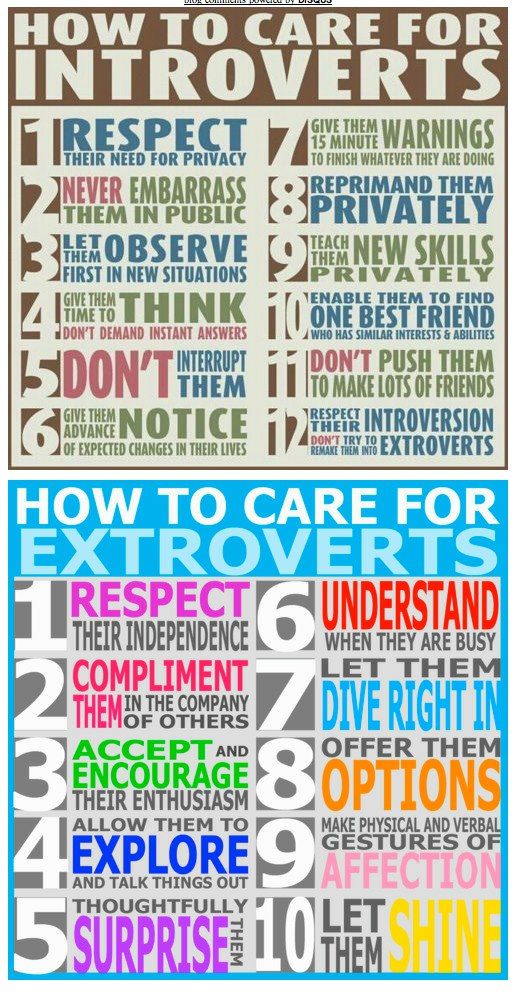 Everyone acts introverted at times and extroverted at other times. It’s all about what your preference — in general — is.
Everyone acts introverted at times and extroverted at other times. It’s all about what your preference — in general — is.
Why It’s Important to Understand Your Temperament
It’s powerful to understand your temperament, because when you live a life that complements your nature, you unleash incredible stores of energy.
On the other hand, when you spend too much time fighting your nature, the opposite happens, and you end up depleting yourself. If you’re an introvert who has been stuffing your schedule full of social events — and leaving no time for solitude — you won’t feel or function at your best. If you’re an extrovert whose career forces you to be alone for long periods of time, you’re probably not living your best life. Working with your temperament rather than fighting against it will ultimately make you happier, more productive, and more present for the people in your life.
That’s one of the reasons that taking the introvert test can be so powerful; knowing where you get your energy means you can be your best self.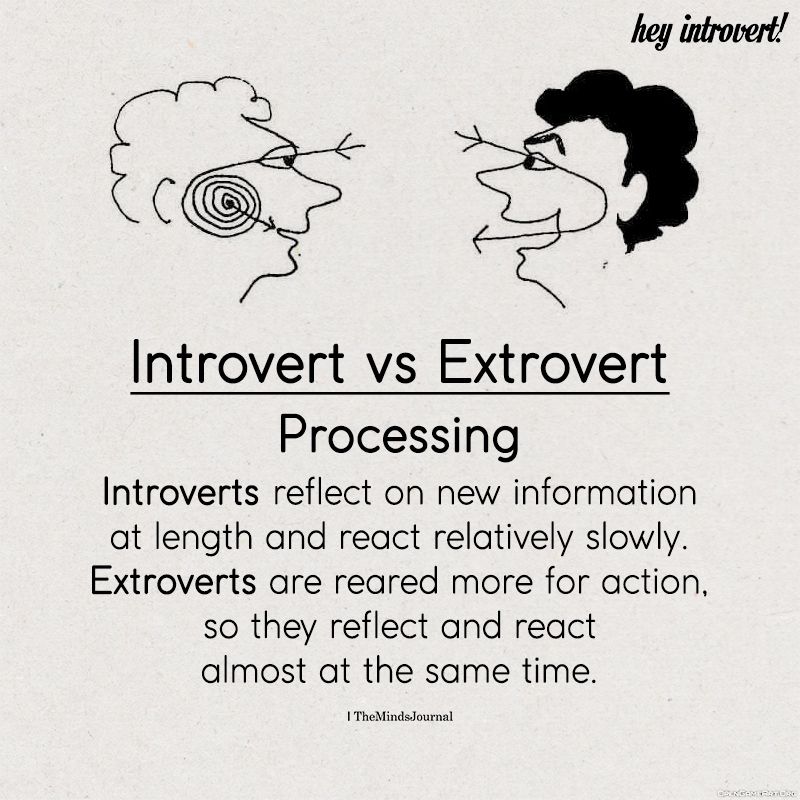
Learn More About Introversion
Check out the bestselling book, The Secret Lives of Introverts: Inside Our Hidden World , by Introvert, Dear founder Jenn Granneman.
Also, we recommend starting with these articles:
- If You Relate to These 21 Signs, You’re Probably an Introvert
- Introverts Don’t Hate People, They Hate Shallow Socializing
- Why Do Introverts Love Being Alone? Here’s the Science
And thank you for taking the introvert/extrovert quiz. We hope it’s the first step toward a long path of getting to know yourself.
Are you an introvert or an extrovert?
Question 1/14
You’re really busy at work and a colleague is telling you their life story and personal woes. You:
All questions are required
- A Don’t dare to interrupt them
- B Think it’s more important to give them some of your time; work can wait
- C Listen, but with only with half an ear
- D Interrupt and explain that you are really busy at the moment
Question 2/14
You’ve been sitting in the doctor’s waiting room for more than 25 minutes.
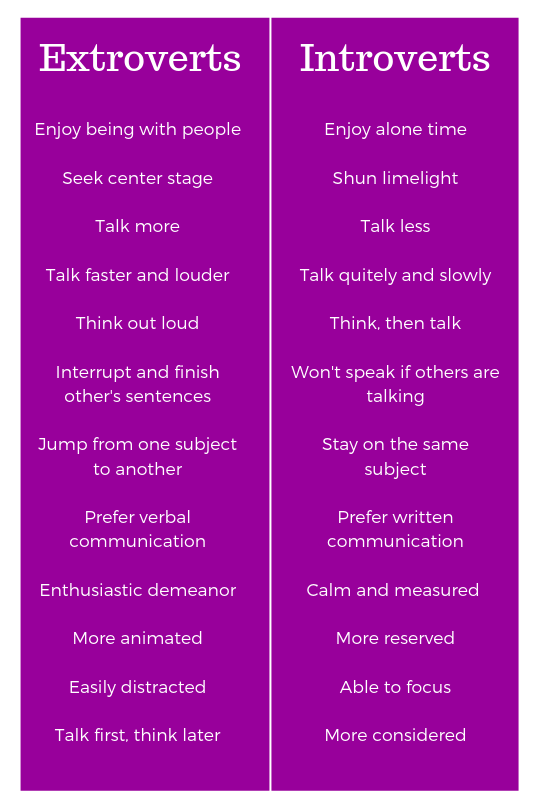 You:
You: All questions are required
- A Look at your watch every two minutes
- B Bubble with inner anger, but keep quiet
- C Explain to other equally impatient people in the room that the doctor is always running late
- D Complain in a loud voice, while tapping your foot impatiently
Question 3/14
You’re having an animated discussion with a colleague regarding a project that you’re in charge of. You:
All questions are required
- A Don’t dare contradict them
- B Think that they are obviously right
- C Defend your own point of view, tooth and nail
- D Continuously interrupt your colleague
Question 4/14
You are taking part in a guided tour of a museum.
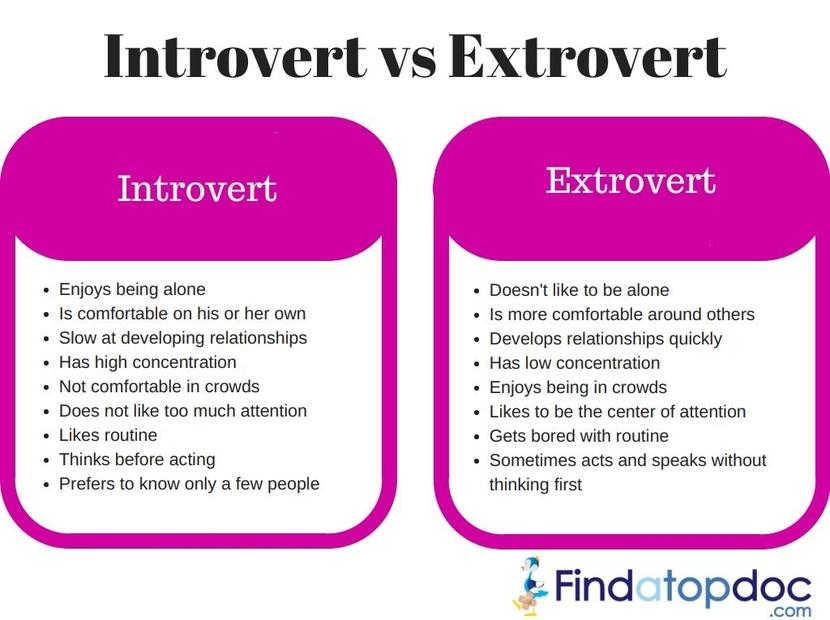 You:
You: All questions are required
- A Are a bit too far towards the back so don’t really hear what the guide is saying
- B Follow the group without question
- C Make sure that everyone is able to hear properly
- D Are right up the front, adding your own comments in a loud voice
Question 5/14
During dinner parties at your home, you have a hard time with people who:
All questions are required
- A Ask you to tell a story in front of everyone else
- B Talk privately between themselves
- C Hang around you all evening
- D Always drag the conversation back to themselves
Question 6/14
You crack a joke at work, but nobody seems to have noticed.
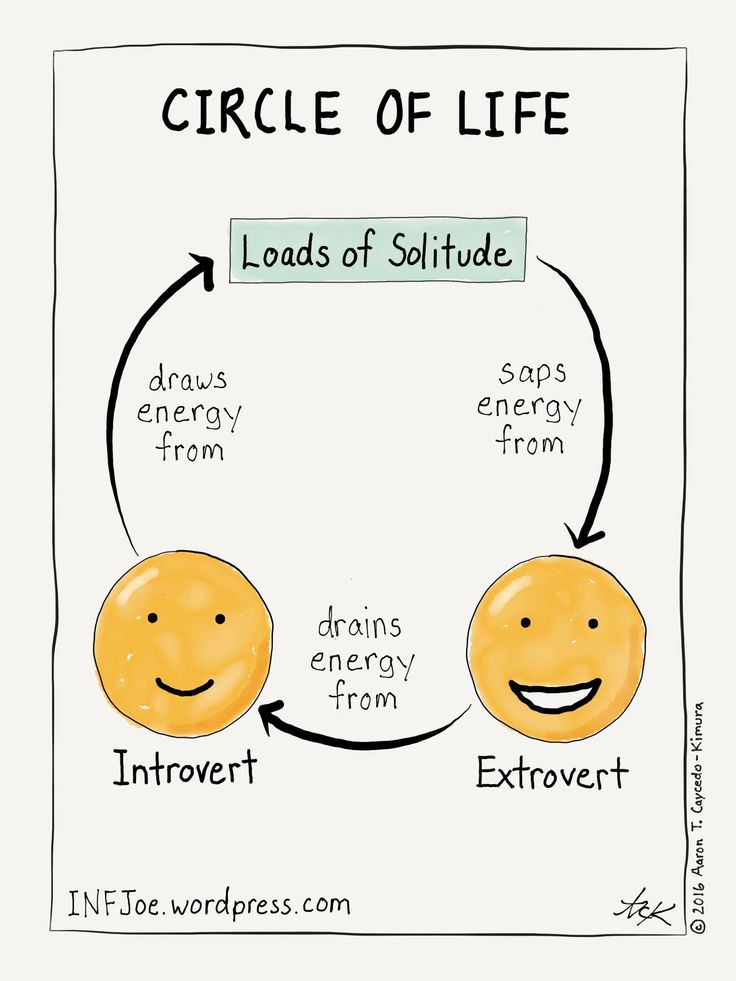 You:
You: All questions are required
- A Think it’s for the best — it was a lame joke anyway
- B Wait to share it with your friends after work
- C Try again a bit later with one of your colleagues
- D Keep telling it until they pay attention
Question 7/14
This morning, your agenda seems to be free. You:
All questions are required
- A Know that somebody will find a reason to come and bother you
- B Heave a sigh of relief and look forward to a day without stress
- C Question your colleagues about a project that’s been worrying you
- D Pick up the phone and start filling up your agenda with meetings
Question 8/14
During dinner, the discussion moves to a subject about which you know nothing at all.
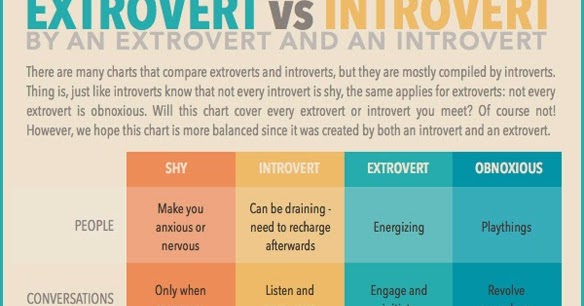 You:
You: All questions are required
- A Don’t dare show that you don’t know anything about the subject
- B Barely follow the discussion
- C Ask lots of questions to learn more about it
- D Change the subject of discussion
Question 9/14
You’re out with a group of friends and there’s a person who’s quite shy and doesn’t talk much. You:
All questions are required
- A Notice that they’re alone, but don’t go over to talk with them
- B Go and have a chat with them
- C Shoot some friendly smiles in their direction
- D Hardly notice them at all
Question 10/14
At work, somebody asks for your help for the hundredth time.
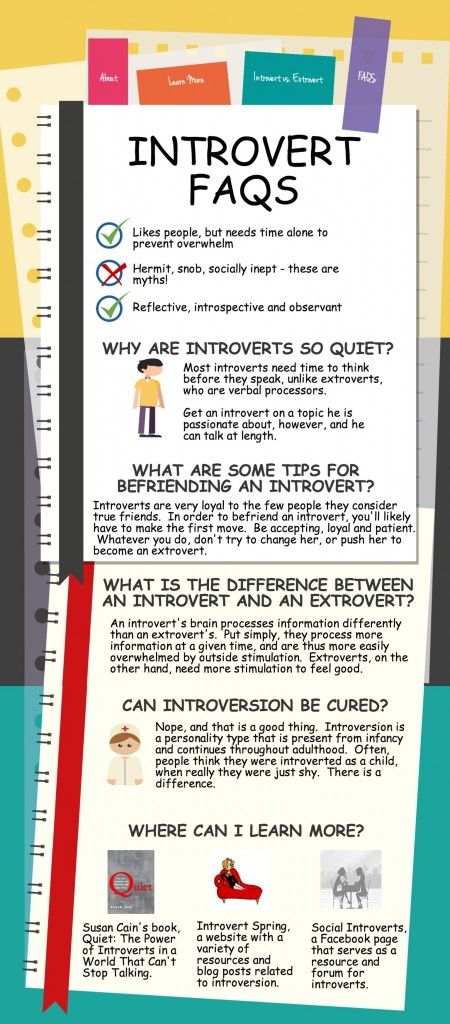 You:
You: All questions are required
- A Give them a hand, as usual
- B Accept — you’re known for being helpful
- C Ask them, please, to find somebody else for a change
- D Loudly make it known that you’re annoyed
Question 11/14
You’ve been see a movie with your family and the reviews are mixed. You:
All questions are required
- A Don’t share your point of view with anyone
- B Didn’t like the film, but keep your views to yourself when asked
- C State your point of view with enthusiasm
- D Try to bring the others round to your point of view
Question 12/14
A friend arrives late for your meeting.
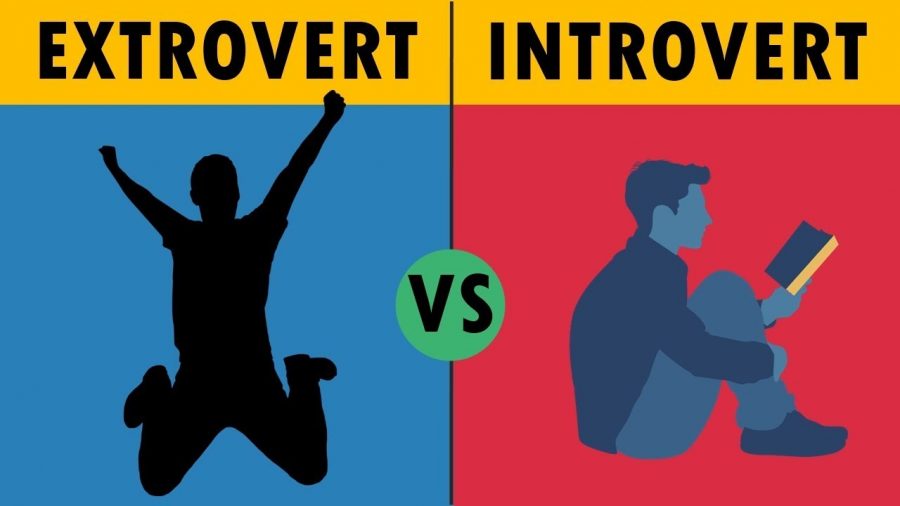 You:
You: All questions are required
- A Say, ‘It’s not a problem,’ even if that’s not what you really think
- B Give them a filthy look and sulk for the rest of the evening
- C Tell them, ‘You’re too much! Have you seen the time?’
- D Make a scene in front of everyone
Question 13/14
You can’t find your car keys. You:
All questions are required
- A Don’t want anyone to find out, so you take the bus instead
- B Panic and search madly without asking anyone for help
- C Grumble without telling your family why you’re in a bad mood
- D Accuse those around you for misplacing them
Question 14/14
It’s time for your annual appraisal with your boss.
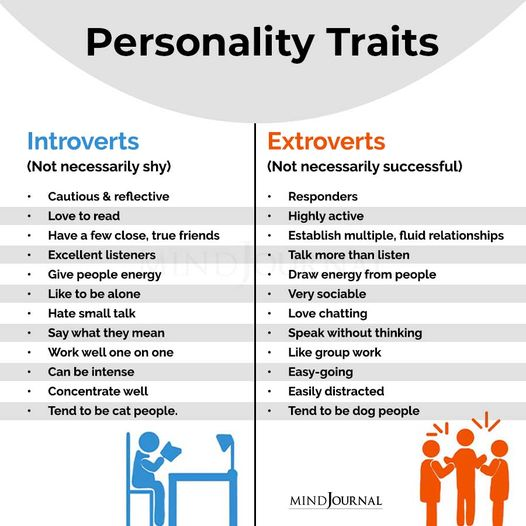 You:
You: All questions are required
- A Go with great hesitation as these sessions are torture for you
- B Look forward to hearing what your boss thinks about you and expects from you
- C Rehearse ad nauseam the arguments and ideas that you’ve prepared for the meeting
- D Go along unprepared as you are confident and like improvising
Test: introvert, extrovert or ambivert?
Why are some people sociable and active, while others prefer to withdraw into themselves? Why is the difference between some so strong that it is very difficult for them to understand each other? Due to different focus and perception. For some, they are directed to the outside world, for others, to their own experiences.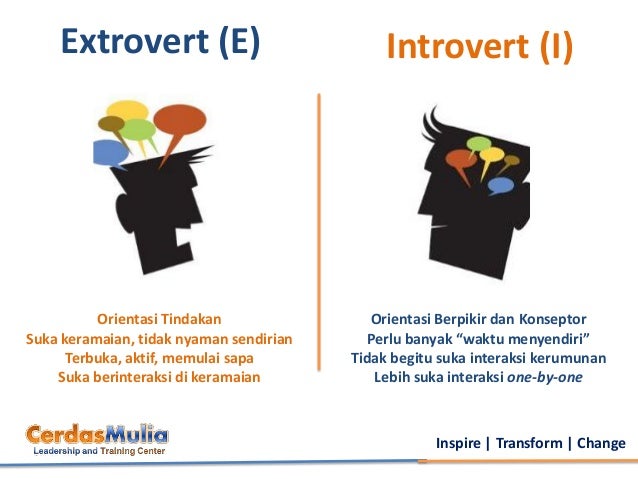 Do you want to determine whether you are an ambivert, introvert or extrovert? The test will help you find out and learn a little more about yourself.
Do you want to determine whether you are an ambivert, introvert or extrovert? The test will help you find out and learn a little more about yourself.
1. Is it easy for you to meet new people?
Yes.
No.
2. You are better at work that requires:
Attentiveness, thoughtfulness, perseverance.
Frequent movement, making quick decisions.
3. You are more often told that you act like you are:
More years than you really are.
Less years than it really is.
4. Do you often try to see your actions from the outside, understand their motives, predict the results?
Yes.
No.
5. Which of these problems related to the management and distribution of finances seems closer to you?
I save more often, sometimes I'm stingy, afraid to make a rash purchase.
I suffer from spending money, more often I throw away money on unnecessary things.
6. Do you prefer to think about your steps, to plan them clearly and in detail, before proceeding directly to action?
Yes.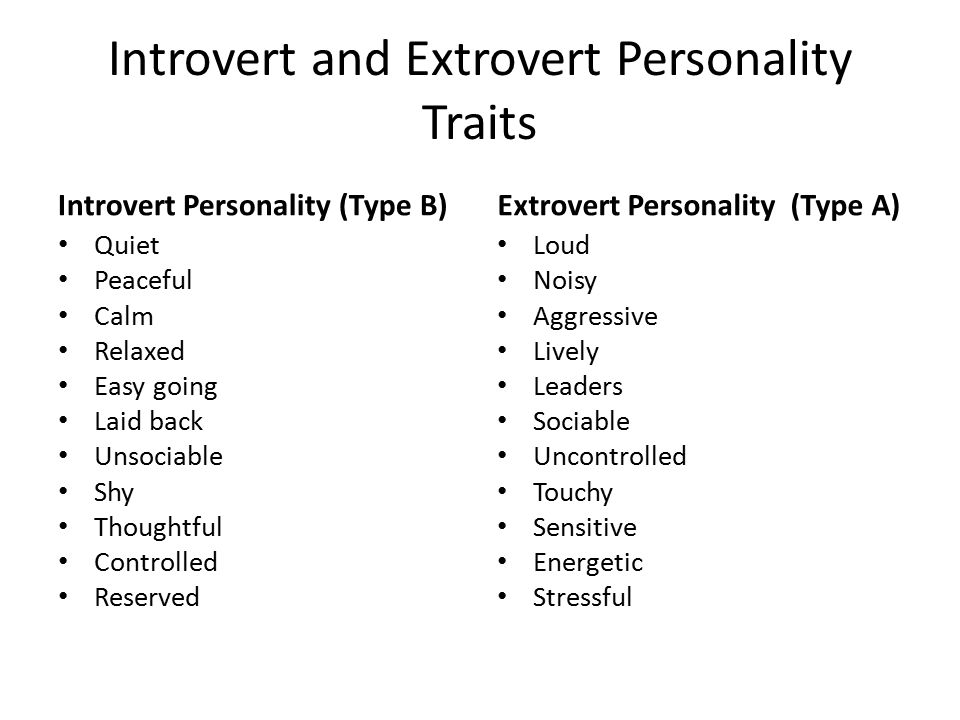
No.
7. Do you tend to have long phone conversations (personal, non-work related)?
Yes.
No.
8. What do you value most in people?
Activity, sense of humor.
Lack of obsession, tolerance.
9. Being tired after an emotionally heated day, would you rather stay at home than go to a concert of a famous star with your friends?
Yes.
No.
10. You are usually much better at:
Plan your affairs, stick to the plan.
Improvise on the go.
11. Does it often happen to you that you think so deeply about something that you hardly notice anything around you?
Yes.
No.
12. Do you enjoy working in a team or managing people more than doing all the work yourself?
Yes.
No.
13. Does it happen that others misinterpret your emotions (called sad or angry when you are just focused, for example)?
Yes.
No.
14. Why do you think your loved ones appreciate you?
For the ability to cheer up, dispel anxieties.
For understanding, deep sympathy.
15. You would rather prefer a job that offers:
A good salary and a prestigious position, but a disgusting team and an inadequate boss.
Warm relations with colleagues, fair bosses, but the average level of salary without much prospects for growth.
16. Do you like frequent change of activities, multitasking and fast pace of solving cases?
Yes.
No.
17. Are you often told that you are terribly stubborn and very difficult to convince of anything?
Yes.
No.
18. For advice and information, you would rather contact:
Friends, professionals in a particular field.
Books, informational articles on the Internet.
19. Do you prefer music that you can:
To dance, putting aside all thoughts.
Lose yourself in thoughts, images and/or emotions.
20. Usually your movements and speech are faster.
Slow, with arrangement.
Fast, confused.
Psychological tests on the topic "Introvert" online
-
Eysenck Personality Inventory EPI
03/06/2012 39899
The Eysenck Personality Inventory (EPI) contains 57 questions, 24 of which are aimed at identifying extraversion-introversion, 24 others - at assessing emotional stability-instability (neuroticism), the remaining 9 form a control group of questions designed to assess the sincerity of the subject, his attitude to the examination and the reliability of the results.
-
Extraversion-Introversion (Eysenck)
02/22/2017 49375
Eysenck personality questionnaire (Eysenck Personality Inventory, or EPI) was published in 1963 and contains 57 questions, 24 of which are aimed at identifying extraversion-introversion, 24 others - at assessing emotional stability-instability (neuroticism), the remaining 9 make up the control a group of questions designed to assess the sincerity of the subject, his attitude to the survey and the reliability of the results.
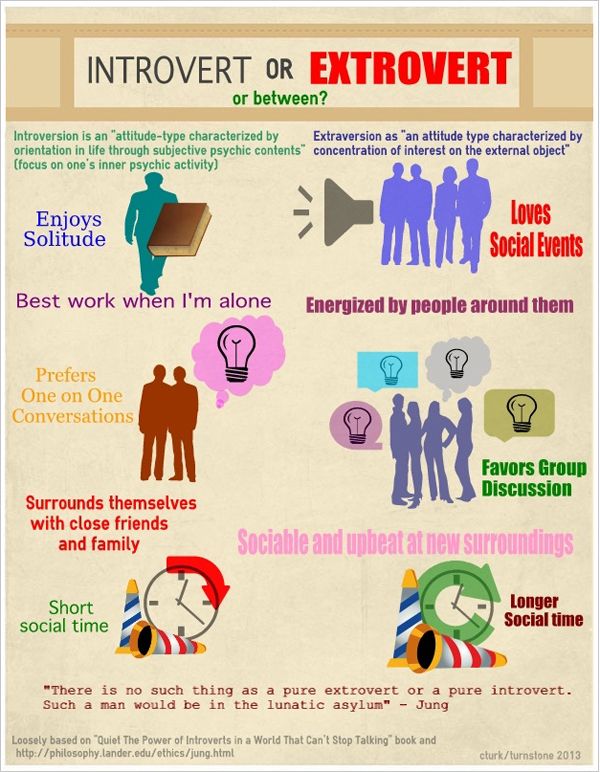 G. Eysenck developed two versions of this technique (A and B), which differ only in the text of the questionnaire. instruction, key and data processing are duplicated. The presence of two forms allows the psychologist to conduct a repeated study. And
G. Eysenck developed two versions of this technique (A and B), which differ only in the text of the questionnaire. instruction, key and data processing are duplicated. The presence of two forms allows the psychologist to conduct a repeated study. And -
Who are you, Introvert or Extrovert?
05/16/2016 6950
The test allows you to determine the predisposition to introversion or extroversion in a person (author Jung).
-
Extrovert or introvert?
10/16/2017 4135
Test: By temperament, people are divided into introverts, extroverts and ambiverts. What psychotype do you belong to?
-
Methodology for determining the type of character according to K.
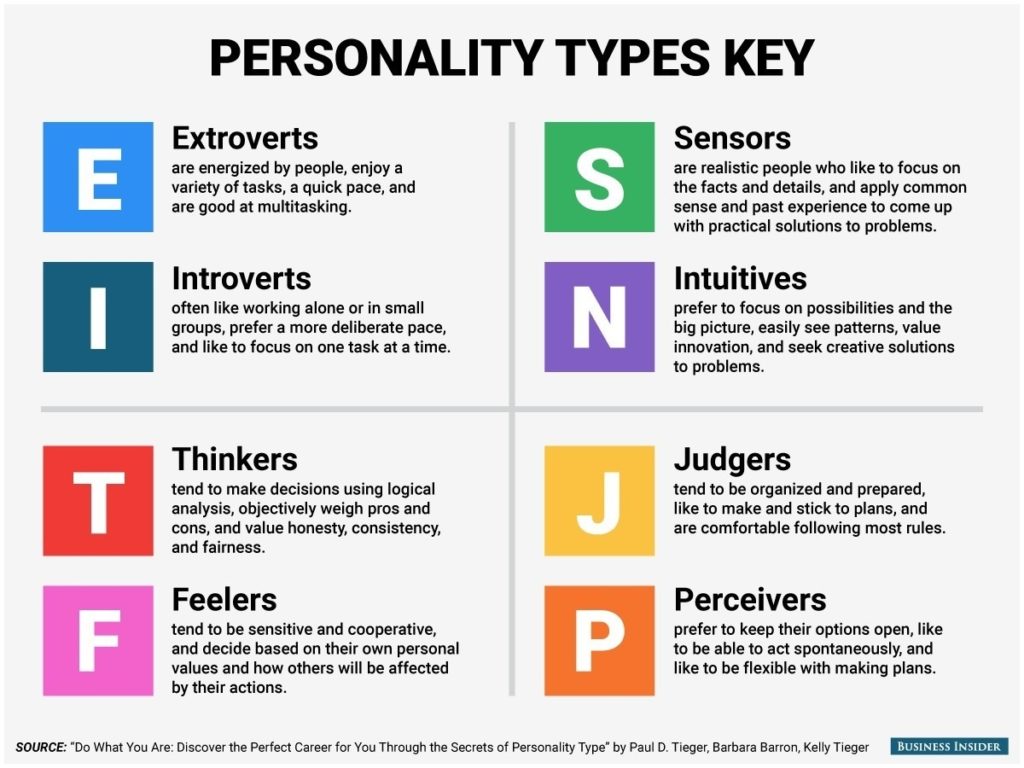 Jung
Jung 04/27/2012 27609 0
Based on his psychoanalytic teaching on the soul, Jung created a personality typology in which he singled out two main types: extroverts and introverts. These psychological personality types coexist in every person. It is possible to determine a specific psychological type of personality by identifying the prevailing characteristics of one of the parties - extraversion or introversion. In the event that the ratio of extraversion and introversion in a person is approximately the same, then he is classified as an ambivert. Find out what type of person you are!
-
Jung's questionnaire
01/17/2022 319 0
This technique was proposed by C. Jung to identify the typological features of personality
-
Type of character: extrovert or introvert?
07/02/2015 842 0
The creator of analytical psychology, Carl Gustav Jung, believed that there are two ways for any person to adapt to the outside world.
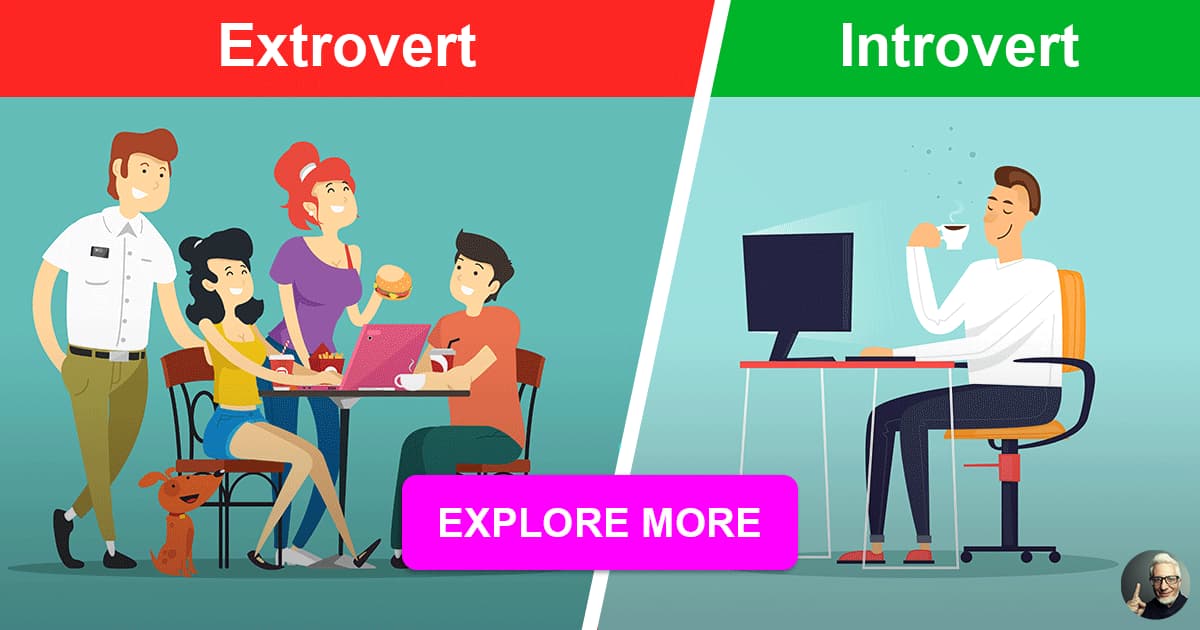 The first is expansion, which consists in constant communication, expansion of contacts and business ties. This is how extroverts operate, trying to get as much out of life as possible. Unlike them, introverts have little contact, they limit communication with other people, withdraw into themselves, hide like snails in their shells. Do you want to know if you are an extrovert or an introvert?
The first is expansion, which consists in constant communication, expansion of contacts and business ties. This is how extroverts operate, trying to get as much out of life as possible. Unlike them, introverts have little contact, they limit communication with other people, withdraw into themselves, hide like snails in their shells. Do you want to know if you are an extrovert or an introvert? -
Are you an extrovert or an introvert
06/21/2016 9323
This test is the simplest way to diagnose the temperature (psychological warehouse)
-
Temperament Strip: Are you an extrovert or an introvert?
01/12/2022 23 0
Each of us has heard these popular psychological terms - extrovert and introvert.
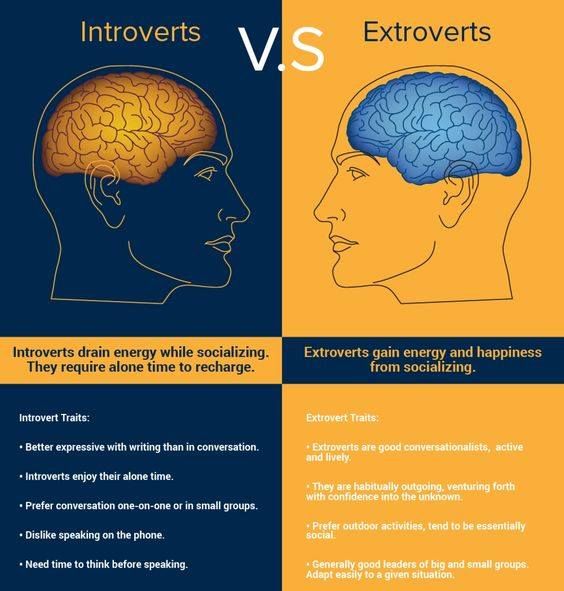
Learn more




